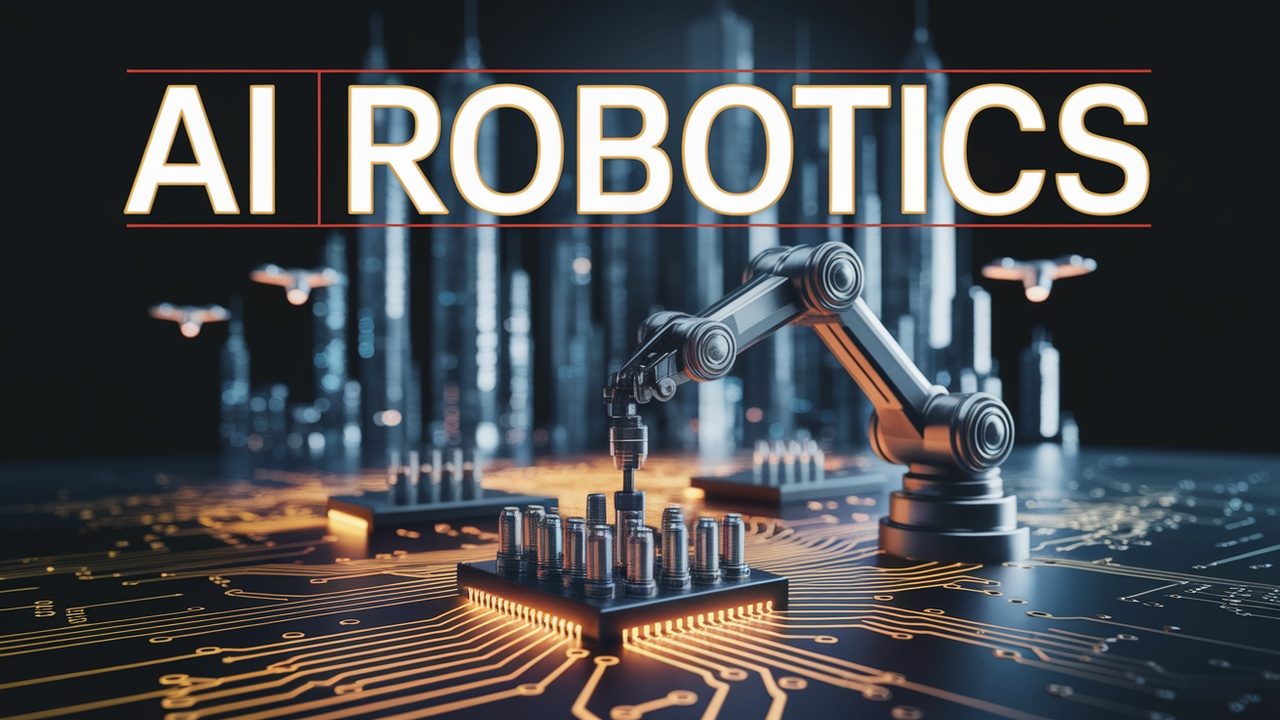
This course provides a comprehensive overview of artificial intelligence applications in robotics. Students will learn the fundamentals of AI, machine learning, and their integration with robotic systems to create intelligent machines capable of performing complex tasks.
Course Levels
-
Level 1: Introduction to AI and Robotics
This introductory level covers the basics of artificial intelligence and the foundational concepts of robotics. Students will explore the definitions, history, and the significance of AI in modern robotics.
-
Level 2: Machine Learning Fundamentals
This level dives into the core concepts of machine learning, a crucial component of AI. Students will learn about different learning paradigms and algorithms used in robotics.
-
Level 3: Perception and Sensory Systems
At this level, students will explore how robots perceive their environment through sensors and how AI processes this sensory data to make decisions.
-
Level 4: Robotics Control Systems
This level focuses on the design and implementation of control systems for robots. Students will learn how AI algorithms are applied to control robotic movements.
-
Level 5: Reinforcement Learning for Robotics
In this advanced level, students will study reinforcement learning, a powerful AI technique, and its applications in training robots to perform tasks through trial and error.
-
Level 6: Advanced AI Techniques in Robotics
This level explores cutting-edge AI techniques used in robotics, including deep learning and neural networks, enhancing the robot's capabilities.
-
Level 7: Human-Robot Interaction
This level examines the principles of human-robot interaction (HRI), focusing on how robots can effectively communicate and collaborate with humans.
-
Level 8: Applications and Future Trends
The final level highlights the latest advancements and future trends in AI for robotics, including autonomous vehicles, drones, and robotics in various industries.
Course Topics
-
The Evolution of Robotics
# The Evolution of Robotics Robotics is a field that has undergone significant transformation since its inception. Understanding the evolution of robotics not only provides insight into how current t...
-
Computer Vision Basics
# Computer Vision Basics Computer Vision is a field of artificial intelligence that enables computers to interpret and make decisions based on visual data from the world. In this section, we will exp...
-
Recurrent Neural Networks (RNNs) for Robotics
# Recurrent Neural Networks (RNNs) for Robotics Recurrent Neural Networks (RNNs) are a class of neural networks specifically designed to handle sequential data. Their architecture allows them to main...
-
Motion Planning Algorithms
# Motion Planning Algorithms Motion planning is a fundamental component of robotics, enabling robots to navigate through their environment efficiently while avoiding obstacles. This topic explores va...
-
Basic Components of a Robot
# Basic Components of a Robot Robots are sophisticated machines designed to perform tasks autonomously or semi-autonomously. Understanding the basic components of a robot is crucial for anyone intere...
-
Q-Learning and Value Functions
# Q-Learning and Value Functions ## Introduction to Q-Learning Q-Learning is a model-free reinforcement learning algorithm that aims to learn the value of an action in a particular state. It enables ...
-
Types of Robots and Their Applications
# Types of Robots and Their Applications Robots have become an integral part of various industries and daily life, offering solutions to tasks that range from mundane to complex. In this topic, we wi...
-
Key Machine Learning Algorithms
# Key Machine Learning Algorithms In this section, we will explore some of the fundamental machine learning algorithms that are widely used in AI applications, particularly in robotics. Understanding...
-
Understanding Environmental Mapping
# Understanding Environmental Mapping Environmental mapping is a crucial concept in robotics and autonomous systems, allowing machines to perceive and interact with their surroundings effectively. Th...
-
Policy Gradient Methods
# Policy Gradient Methods Policy Gradient Methods are a class of reinforcement learning algorithms that optimize the policy directly rather than the value function. This approach is particularly bene...
-
Overfitting and Underfitting
# Overfitting and Underfitting In the realm of machine learning, understanding the concepts of overfitting and underfitting is crucial for developing robust models. These two issues represent the ext...
-
Signal Processing in Robotics
# Signal Processing in Robotics Signal processing is a critical component in robotics, enabling machines to perceive their environment through various sensors. This topic covers the essential concept...
-
Generative Adversarial Networks (GANs) Applications
# Generative Adversarial Networks (GANs) Applications Generative Adversarial Networks (GANs) are a powerful class of machine learning frameworks that have gained significant attention due to their ab...
-
User-Centered Design in Robotics
# User-Centered Design in Robotics User-Centered Design (UCD) is a crucial methodology in the field of Human-Robot Interaction (HRI). It ensures that robotic systems are not only functional but also ...
-
Control Theory Basics
# Control Theory Basics ## Introduction to Control Theory Control Theory is a fundamental aspect of robotics and automation, focusing on the behavior of dynamic systems through the use of control loo...
-
State Estimation and Kalman Filters
# State Estimation and Kalman Filters State estimation is a fundamental aspect of robotics and control systems, where the objective is to infer the internal state of a dynamic system from noisy senso...
-
Model Evaluation and Validation Techniques
# Model Evaluation and Validation Techniques In the realm of machine learning, particularly within robotics, evaluating and validating models is crucial to ensuring that they perform accurately and r...
-
Ethical Considerations in HRI
# Ethical Considerations in Human-Robot Interaction (HRI) ## Introduction As robotics technology advances, the interaction between humans and robots becomes increasingly complex and nuanced. Ethical...
-
The Role of AI in Robotics
# The Role of AI in Robotics ## Introduction Artificial Intelligence (AI) has transformed numerous fields, and robotics is no exception. The integration of AI into robotics has enabled machines to pe...
-
Basics of Human-Robot Interaction
# Basics of Human-Robot Interaction Human-Robot Interaction (HRI) is a multidisciplinary field that focuses on the design, implementation, and evaluation of robotic systems that can effectively inter...
- And 20 more topics...